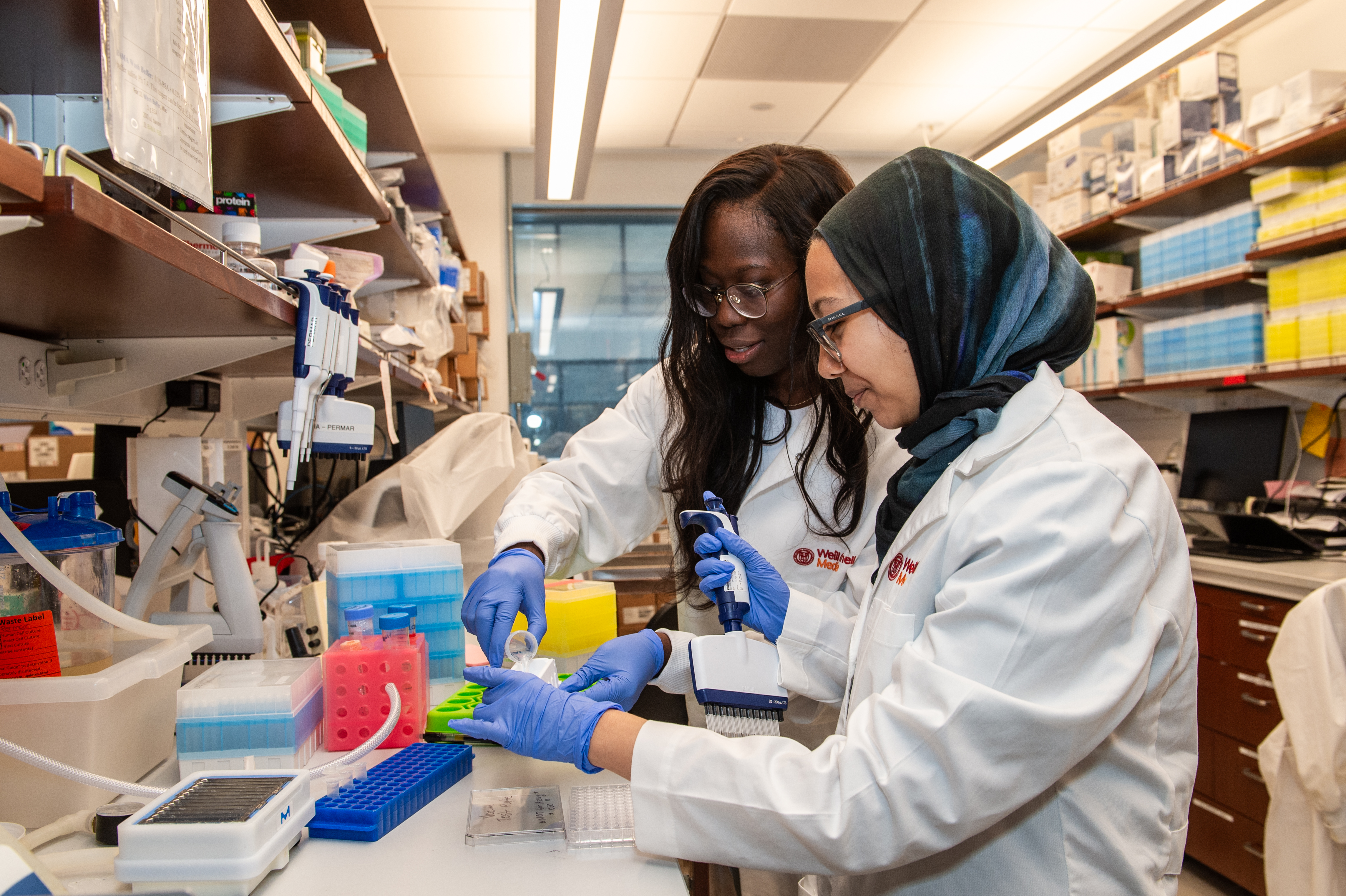
In a large hotel conference room at the end of February, hundreds of pediatrician scientists from all points urban and rural alike across the U.S. gathered to showcase their research, meet with mentors, and celebrate each other. The room was buzzing with energy, stemming from sparks of curiosity and pride. It would not be hyperbole to note that the some of the brightest minds and most noble physicians in pediatric research sat in the room that day, all members of a 40-year strong cohort of the Pediatric Scientist Development Program (PSDP).
For over four decades, PSDP has served as a vital pipeline for early-career pediatricians pursuing research careers aimed at improving child health around chronic disease and illness. Under the leadership of Dr. Sallie Permar, a distinguished physician-scientist and national leader in pediatric infectious disease research, the PSDP has continued to thrive as one of the most well- regarded training programs for pediatrician scientists in the United States.
The PSDP was designed to fill a critical gap, removing barriers to research access and training, including limited time, funding, and mentorship. The program provides a structured, intensive yet supportive environment in which early-career physicians receive dedicated mentorship, protected research time, and funding that allows them to pursue rigorous scientific training in basic, translational, or population health sciences.
Dr. Permar has been deeply involved in not just directing the program but also shaping its vision for the future. “The PSDP doesn’t just produce pediatrician researchers, it cultivates leaders who understand how to drive discovery to deliver better care for children, which is the end goal for anyone in pediatrics,” she says.
On the heels of that energizing day in February, we learned that the NIH paused the program’s federal funding, creating shock waves across the academic pediatrics community. The loss of this long-standing program sparked a groundswell of advocacy. Former scholars, department chairs, professional associations, mentors, and parents and patients from across the country joined forces to support the PSDP. Individuals raised their voices through calls to their members of Congress and engaged in a postcard writing campaign. The PSDP community mobilized to make clear that this program was not only successful, but it was also essential to cure chronic disease and help children flourish.
Thanks to a combination of subsequent legal measures and coordinated advocacy efforts, the funding was recently reinstated. The moment underscored the importance of both advocacy and community. “It reminded all of us that scientific progress doesn’t happen in isolation,” notes Dr. Permar. “It takes infrastructure, support, partnership, and belief in the next generation.”
Federal funding is central to that infrastructure. As a department chair, a practicing scientist, and a mentor, Dr. Permar sees federal research investment as the lifeblood of biomedical progress and an antidote to build and grow the professional pipeline of pediatrician scientists. “Taxpayer support from the NIH allows us to ask bold questions and pursue discoveries that ultimately benefit children and families nationwide, if not worldwide,” she explained. “The return on investment is enormous, not just in terms of lives saved, but also in improved health outcomes and long-term cost savings so children grow up healthy and go on to lead productive lives into adulthood.”
Pediatric research is often underfunded relative to other fields, despite its broad societal impact and moral imperative to center children’s wellbeing. Programs like PSDP ensure that the unique needs of children are not overlooked in the scientific enterprise. “Children are not just small adults,” Dr. Permar said. “They require tailored research, and that starts with training people who understand the needs of children both in the clinic and the lab.”
Looking ahead, trainees are exploring interdisciplinary research at the intersection of pediatrics and areas such as genomics, social determinants of health, and epigenetics. PSDP scholars are tackling the most urgent questions of our time with an eye on the future. The program’s alumni have made major health advances for children such as discovering novel therapies for childhood cancers, during genetic diseases through gene therapy, and eliminating chronic kidney disease in preterm infants. The esteemed alumni have gone onto serve in major leadership roles including leading academic departments, biotech companies, health systems, and state health programs.
“As a training pediatrician-scientist, my goal is to improve therapies for pediatric asthma. Reinstatement of the PSDP will provide highly impactful career development and research support not just through funding, but by building a team of accomplished mentors and scientific networks to forward my research career and ultimately help our children with difficult-to-treat asthma,” remarks Dr. Patricia dela Cruz of Seattle Children’s Hospital.
The last few months of experiencing a faltering in the program that the field of pediatrics sees as so vital to its advancement has been eye opening for many child health leaders. Beyond the lab bench and clinical trials, science communications and storytelling are vital to fostering public trust and support, and even excitement as we illuminate the exiting discoveries on the the horizon. Data moves science forward, but stories move people. Whether it is the story of a breakthrough in treating a rare childhood illness, or the personal journey of a scholar overcoming obstacles to become a research leader, these narratives help humanize science and medicine, and more importantly, make the case for why we must invest in programs like PSDP.
As the PSDP is poised to welcome its next cohort, Dr. Permar and her colleagues remain steadfast in their belief that training the next generation of pediatrician-scientists is one of the most powerful ways to improve the lives of children everywhere. The scholars we train today will be the ones who discover tomorrow’s cures, develop lifesaving programs and policies, and shape a healthier future for all children and our population at large.

